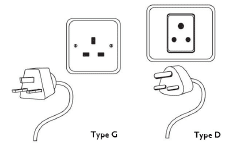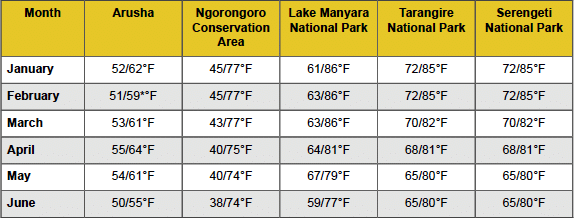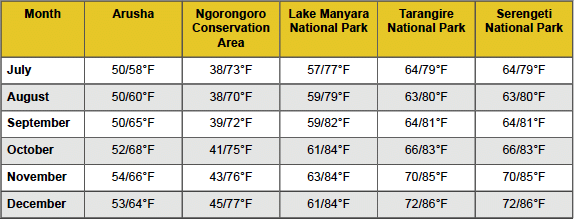
Fun Facts
- The world’s earliest human skull was found in Olduvai Gorge.
- The country is bordered by Uganda, Kenya, Congo, Burundi, Rwanda, Malawi, Mozambique, Zambia, and the Indian Ocean.
- Tanzania is home to 12 national parks, 13 nature reserves, and 38 protected areas, and has the largest concentration of animals per square kilometer in the world.
- Tanzania shares its national anthem with South Africa and Zimbabwe.
- Coconut crabs, the largest land-living crabs in the world, are found in Tanzania’s Zanzibar archipelago. They can exceed 3 ft. (1 m.) in length, with a weight of up to 9 lbs. (4.1 kg.).
When Tanganyika and Zanzibar united in 1964, they created Tanzania, a paradise of magnificent scenery, culture, wildlife, and adventure. Within its borders is a virtual treasure trove of attractions that includes the legendary Serengeti, Ngorongoro Crater, Mount Kilimanjaro, the Great Rift Valley, and the idyllic beaches of Zanzibar. It’s a country whose distinctive geography offers up a little of everything: mountains and deserts, rivers and lakes, islands and tropical rainforests, volcanoes and waterfalls…and whose red-clad Maasai warriors and semi-nomadic tribesmen make an unforgettable impression with their traditions and warm hospitality. And, yes, this is the land that wrote the book on safaris. Permanent, year-round water supplies make Tanzania the site of the Great Migration, one of the greatest natural spectacles on Earth. With millions of zebras, Cape buffalo, and wildebeest congregating among resident elephants, giraffes, lions, cheetahs, leopards, hippos, rhinos, crocodiles, hundreds of species of birds, and the largest concentration of baboons t Tanzania is one of the most popular travel destinations on the continent.
VISAS, PASSPORTS, AND OTHER ENTRY REQUIREMENTS
You are responsible for obtaining and paying for all entry documents (visas, etc.) and for meeting all health requirements (inoculations, etc.) as required by the laws, regulations, or orders of the countries you will visit. We cannot accept liability if you are refused entry onto any transport or into any country for failure to carry correct documentation.
A visa for your visit to Tanzania is necessary for US citizens. If you hold a passport from another country, check with your local consulate about requirements for travel to Tanzania.
Visas can be obtained through an embassy or a visa service prior to departing the US. Alternatively, they can be obtained upon arrival at the airport in Arusha or at the border crossing between Tanzania & Kenya.
The embassy or visa service will be able to advise of the latest requirements for obtaining a visa. If you choose to obtain a visa at the airport/border upon arrival:
- It is critical that you check visa requirements (blank pages needed, passport validity, etc) prior to leaving the US.
- Delays upon arrival/at the border should be expected.
In general, going through a visa service is more expensive but it offers convenience and peace of mind. If you choose to go this route, we recommend contacting Generations Visa Services (GenVisa), our preferred partner for visa and passport services, at least 90 days prior to departure. GenVisa has a special website and toll-free number. Call 800.845.8968, email info@genvisa.com, or visit their below websites for additional information. Our travelers receive discounted prices and other special services:
- For Monograms, visit: genvisa.com/monograms
- For Globus, visit: genvisa.com/globus
- For Cosmos, visit genvisa.com/cosmos
All passengers traveling internationally are required to have a passport. Most countries require that the passport be valid for at least six (6) months beyond the conclusion of your trip, so please check the expiration date carefully. It is also recommended you have a minimum of three blank pages in your passport when traveling, as many countries require blank pages. Please carry proper identification (your passport) on you and do not leave it in your suitcase or hotel room. Most countries have laws that require you to carry your passport with you at all times.
Health Requirements
It is imperative to find out from your physician what inoculations may be required for travel to Tanzania, and if any other health precautions are recommended (such as anti-malaria pills). For more details, you might also like to consult the internet site of Centers for Disease Control and Prevention at http://www.cdc.gov/travel.
Country Codes
The country code for Tanzania is 255. When calling to Tanzania from overseas, dial your international access code (011 from the US/Canada), followed by the country code, area code, and phone number. Phone numbers in Tanzania are 9 digits in length. Dialing from the US/Canada: 011 255## ### ####.
Currency
As a general guideline, bring a variety of payment means, particularly in the event that you have difficulties with your preferred method of payment.
The most commonly accepted form of payment in Tanzania is by cash in U.S. Dollars. Alternatively, U.S. Dollars can be exchanged into the local currency (Tanzanian Shilling). For initial convenience, we recommend you bring a supply of U.S. Dollars with you from home. A few other important notes when using U.S. Dollars:
-
- Ensure that bills are in good condition and not ripped or torn. These bills may be refused.
- $5, $10, $20 bills – Ensure these are the latest design with the large portraits and subtle background colors, as older U.S. currency will often be refused due to increasing issues with counterfeit bills. For this same reason, establishments may be reluctant to accept larger bills, so we recommend you bring a mix of notes in denominations of 20 or less.
- Change will normally be given in the local currency.
- Keep a supply of smaller denomination notes for minor purchases, water, or tips.
- U.S. Dollars are also useful for tipping your Driver/Guide.
ATMs are available in most cities and towns throughout Tanzania. Keep in mind that only local currency spensed.
1 Tanzanian Shilling = 100 Senti
- Banknote denominations: 500, 1000, 2000, 5000, 10000 Shillings
- Coin denominations: 50, 100, 200 Senti
For the most current exchange rates, please go to our website at Globusjourneys.com/Currency.
Credit Cards
Although cash is the preferred method of payment, Visa and MasterCard are accepted in major city centers, hotels, and shops. Use may be limited outside major cities, but most lodges accept them. Smaller shops may ask you to pay in cash or have a minimum amount required to use a credit card. In some cases, a fee or commission between 5%-10% may be applied when using a credit card. Due to increasing credit card fraud worldwide, be prepared to show identification when making a transaction with a credit card.
Traveler’s Checks
These are not accepted in Tanzania.
Bank hours:
- Monday–Friday: 9 am–3 pm
- Saturday & Sunday: Closed
- Daily at reception in lodges/camps: 8 am–7 pm
Budgeting and Shopping
The following budget guidelines are just approximate values or starting values for meals and are per person. Actual prices will vary widely by restaurant and city within a country but below are some averages as provided by our experienced personnel.
- The approximate cost of a soft drink/mineral water/coffee is US$2-$3.
- An average lunch consisting of a salad or sandwich and a soda or water starts at approximately US$10.
- Dinner at a mid-range restaurant with dessert and a non-alcoholic beverage starts at approximately US$25-$30.
Shopping
When shopping in Tanzania, prices are as marked in department stores, although in markets/curio shops it is customary to barter. Start by negotiating with an offer at one-third or half the vendor’s initial price.
Please be warned that if you buy items on tour to be shipped to your home, customs import charges are rarely included in the price. If you use a credit card for your purchase, you will be debited in the local currency, and your bank will establish the rate of exchange on the debit. Sales tax or GST (Goods & Services Tax) is normally already included on price tags; GST refunds, if applicable, are processed at the departing airport relevant country.
Tipping
Tipping for services is generally not necessary in Tanzania’s rural areas; however, tips are expected in more tourist-heavy spots. For good service, we recommend the following if you choose to tip:
- Tips are already factored in for all included meals in Tanzania. If you venture out for a meal in Arusha, consider rounding up the bill by a few dollars (up to 10% of the bill).
- For taxi service, round up the fare to the nearest whole dollar.
- For hotel staff, tip a dollar or two per service if warranted (excluding porterage, which is included).
Electricity and Electrical Outlets
Outlets
At Lodges & Camps
In Tanzania, many lod day, however, some do shut down the electricity late at night and/or midday to conserve energy. Rest assured, this is a normal practice and part of the safari experience. There is still hot water for showers and enough time to charge batteries/electronic equipment. If you require 24-hour electricity for a breathing device, please let us know prior to departure.
Outlets
Voltage for outlets is 220V. North American voltage is generally 110V. Therefore, you will need a converter for your travels. Adapters will be necessary to adapt your plug into the outlet, but these may not convert the voltage, so both devices are necessary.
The outlets look like this:

Temperatures
Tanzania is generally warm and humid in low-lying areas, and hot during the day, with cool mornings/evenings in higher altitudes.
There are two rainy seasons: April to May and November. The rainfall is not regular or predictable and often falls in brief tropical downpours during the evening or night, with pleasant, sunny days in between.
To help you plan, below are average low and high temperatures for Tanzania.


Ngorongoro Crater’s low is on the rim of the crater and the high is on the floor of the crater.
To convert to Celsius, subtract 30, then divide by 2. While not exact, this simple formula will give a close estimation.
Food Specialties
Food essentials in Tanzania include a wide assortment of fresh produce, vibrant spices, coconut milk, rice, ugali (maize porridge), nyama choma (grilled meats), mshikaki (marinated beef), fish, bananas, and plantains. Some popular dishes include mtori (cooked beef and bananas), mchicha (meat and vegetable stew), and mandazi, a sweet, doughnut-like bread.
Meals on safari
On safari, all meals are included. Meals are normally served in a restaurant or dining tent, depending on the lodge or camp you are staying in. Meals are often buffet style, with a generous choice of dishes and often a live cooking station. In some cases, you may encounter some à la carte dinners. There are generally Western or international dishes, but Indian influences and barbecue are also common. You will also likely find some local choices and game animals, such as wildebeest or impala, to choose from.
Vegetarian options are available at all meals.
Drinking Water
Tap water is not safe to drink in Tanzania. Bottled water is provided each day with meals and on all game
drives. In addition, many of the lodges/camps have complimentary bottled water in each room.
Customs and Culture

- African culture is diverse. You will encounter new customs and different lifestyles as soon as you enter the country. Appreciate and enjoy the differences. A majority of the locals speak English and will greet you with a smile.
- In some African countries, a warm smile and a handshake is a perfectly acceptable greeting. If you are not a local, do not extend your hand first. Wait for the other person to do so. Local men do not normally shake hands with women in public. When greeting an elder, it is acceptable to bow your head slightly in place of a handshake.
- Although not necessary, many visitors like to bring gifts for the local children. If you would like to give a gift, we suggest that gifts and donations be made through local schools and orphanages. This gives you the chance to help the local community without reinforcing the culture of begging. If you do choose to give gifts directly to children you encounter, please do not give out candy. Gifts such as school supplies or clothes are much better options. In addition, we do not recommend that anything be given to street beggars and street children encountered in the towns and cities, as it promotes a negative life-style.
- Always ask permission before taking a photograph of a local resident.
- Poverty is a fact of life in many African countries. You should be prepared to see it, but not be scared by it, as most people are still very happy and friendly. Out of respect, it is best to avoid excessive displays of wealth.
A few words of the local language
Swahili
![]() Hello!: ell: Mzuri sana, Bad: Baya, Yes: Ndio, No: Hapana, Thank you very much: Asante sana, Please: Tafadhali, Goodbye: Kwaheri, Welcome: Karibu, Friend: Rafiki, Sorry: Polay or samahani, How much?: Pesa ngapi?, Where is…?: Iko wapi…?, Today: Leo, Tomorrow: Kesho, Yesterday: Jana, Toilet: Choo, Water: Maji, Coffee: Kahawa, Tea: Chai, Milk: Maziwa, Sugar: Sukari, Ice: Barafu, 1: Moja 2: Bili 3: Tatu 4: Innay 5: Thano 6: Sita 7: Sabah 8: Nanay 9: Tisa 10: Kumi.
Hello!: ell: Mzuri sana, Bad: Baya, Yes: Ndio, No: Hapana, Thank you very much: Asante sana, Please: Tafadhali, Goodbye: Kwaheri, Welcome: Karibu, Friend: Rafiki, Sorry: Polay or samahani, How much?: Pesa ngapi?, Where is…?: Iko wapi…?, Today: Leo, Tomorrow: Kesho, Yesterday: Jana, Toilet: Choo, Water: Maji, Coffee: Kahawa, Tea: Chai, Milk: Maziwa, Sugar: Sukari, Ice: Barafu, 1: Moja 2: Bili 3: Tatu 4: Innay 5: Thano 6: Sita 7: Sabah 8: Nanay 9: Tisa 10: Kumi.
U.S. Department of State Country Information
Additional country-specific information for US citizens can be found on the US Government’s website www.travel.state.gov. Here, you can find the most up-to-date information about destination descriptions, passports/visas, safety and security, transportation, travel local laws, alerts/warnings, vaccinations, and more. For citizens of other nations, we recommend you consult your local consulate for travel information, regulations, and requirements.






